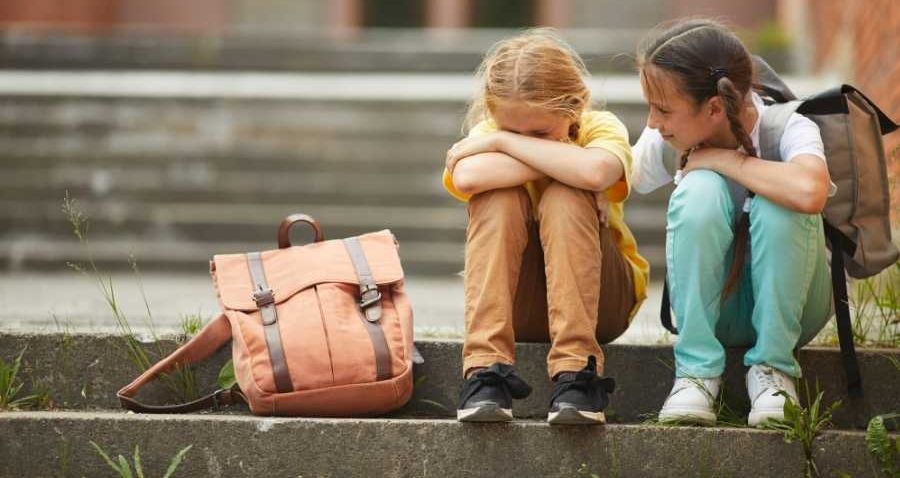A parent saw their kids bullying someone. How they handled it has other parents cheering.
Parenting done right.
What do you do when your kid is being the bully?
Many of us may assume that kids who bully other kids don't have parents teaching them right from wrong, but that's not always true. While a dysfunctional home or lack of parental guidance can lead to bad behavior, even kids from solid families with attentive, conscientious parents can have lapses in judgment. Good kids can fall to peer pressure or "try on" certain behaviors that go against what their parents teach them.
Case in point: a parent who posted a message to a local message board explaining how they handled seeing their kids bullying another kid.

The message was addressed to the parents of a junior high school student who might have come home "very distraught." She explained that he seemed to have some sort of hearing device and described where he was walking with his class.
"Just know that I am so sorry and that I see you," she wrote. "I witnessed my kids picking on your kid. I could see how angry he was. I stepped out of my vehicle as soon as I realized what was going on, and I intervened and I had his back. I have talked to my children. It won't happen again. Please tell your kiddo that we are so sorry, and expect an apology from my junior high-aged child tomorrow at school. We are not raising bullies here."
The screenshot shared on Reddit received praise from other parents in the comments:
"And that's the way you do it!! Good on you for teaching your child what is acceptable and what is not."
"Wish more parents were like this instead of making excuses or pretending their kids are angels. Takes guts to step up when you see your own child being awful."

"It’s rare but beautiful when parenting looks like accountability in real time."
"Parenting done right."
"Wife and I have told both our kids that if they are being bullied, then they have carte blanche to defend themselves, regardless of how the school wishes to punish them. However, if we learn THEY are being the bullies, then whatever punishment the school provides will be NOTHING on what they get at here at home."
"I’m so glad there’s parents like this. My 2 year old is deaf with a hearing device and facial differences caused by his genetic syndrome. I dread him going to school and getting bullied but this gives me hope that there is still good parents raising kids out there!"

There are several steps parents can take to prevent their children from becoming bullies, including teaching them the importance of kindness, fostering empathy, and modeling respectful treatment of others. However, proactive parenting doesn't always take hold, so parents must also be prepared for what to do if their child behaves in a manner that contradicts the way they've been taught.
Considering the fact that this parent didn't know who the picked-on kid or his parents were, this message being put out in a community forum was perfect. It included many great elements on how to handle this kind of situation: The parent took immediate action when they noticed what was happening. They supported the child who was being picked on. They acknowledged the emotion the child was feeling and recognized that the child's parents would be upset, too. They didn't defend their children, but explained what they were doing about what had happened and how they were ensuring it wouldn't happen again. And they apologized and ensured that appropriate in-person apologies would also take place.
Parenting isn't easy, and our kids can surprise us in both delightful and disturbing ways. It takes years of proactive and reactive effort to mold small humans into conscientious, contributing adults. None of us do it all perfectly, which is why it's nice to see a good, solid parenting example we can all learn something from.

